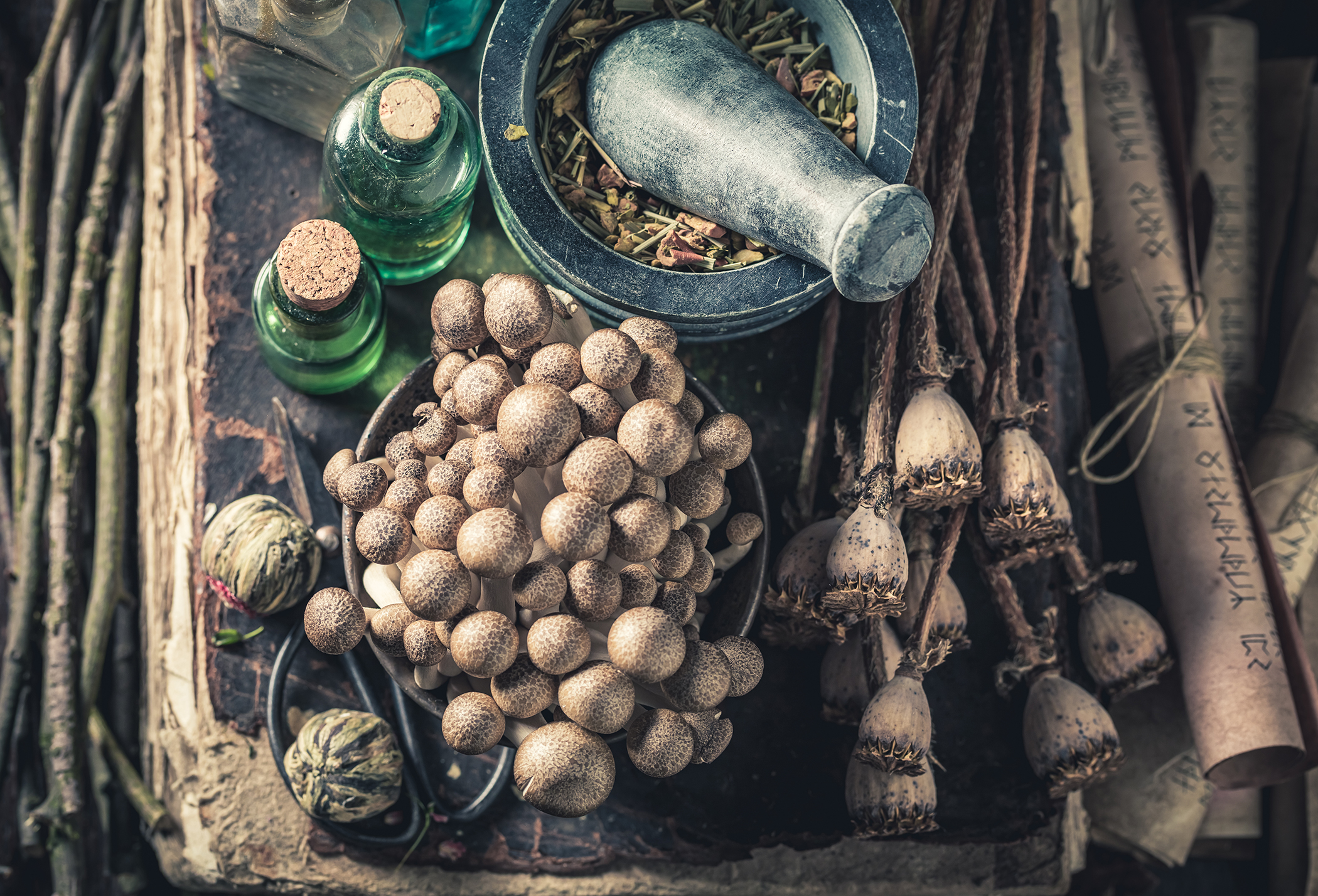Food, Medicine, or Both?
By Jamie Bussin, featuring Dr. Colleen Hartwick ND
There are always trends in the world of health and wellness — the hot topics that seem to dominate conversation for a time before the next big thing takes over. Right now, mushrooms are having their moment. Not the psychedelic kind, but the humble fungi that have long been staples in kitchens and traditional medicine. I spoke about this with naturopath Dr. Colleen Hartwick in Episode #238 of The Tonic Talk Show/Podcast. This is a digest of that conversation.
Dr. Hartwick has been in private practice since 2012 and specializes in trauma-informed care and mental health. She’s also an instructor at the Canadian School for Nutrition and a contributor to Naturopathic Currents. Her perspective on mushrooms bridges science and traditional wisdom — and it turns out, there’s plenty of reason for excitement.
“Mushrooms are a burgeoning field,” she told me. “After hundreds of years of traditional use, we now have science to back up what many cultures already knew — that these fungi can play an important role in supporting health.”
The Power Inside the Fungi
Mushrooms, it turns out, are both food and medicine. Depending on the species, they can support immune health, boost energy, balance hormones, and even improve mood and cognition. Some varieties, such as Lion’s Mane, show promise for brain and nervous system support, while others like Cordyceps and Reishi have been studied for their effects on hormones and stress resilience.
But there’s a catch. Simply tossing a few mushrooms into a stir-fry isn’t enough to unlock their full potential.
“The active compounds in mushrooms are trapped within a tough outer wall made of chitin — the same material found in lobster shells,” Dr. Hartwick explained. “To access those beneficial polysaccharides, such as beta-glucans, you need to break that wall down through a hot water extraction.”
In other words, the process matters. This extraction — simmering mushrooms in hot water for several hours — releases the immune-boosting and hormone-balancing compounds that make medicinal mushrooms so effective. Without it, most of the good stuff stays locked away.
Choosing the Right Mushroom Products
With the mushroom market booming, consumers face a dizzying array of powders, capsules, and tinctures. Dr. Hartwick’s advice is to look for products that clearly state they’ve been prepared using hot water extraction. This step ensures that the polysaccharides are “bioavailable” — meaning your body can actually use them.
“If you’re buying supplements, make sure the company discloses how their mushrooms are processed,” she said. “Otherwise, you may be paying for something that your body can’t really absorb.”
For those who prefer a DIY approach, mushrooms can also be simmered at home in soups or teas to achieve a similar effect. “It doesn’t have to be complicated,” she added. “Just give them time and heat — that’s what breaks down the chitin wall and makes those nutrients available.”
Meet the Mushroom All-Stars
When it comes to medicinal mushrooms, not all species are created equal — though Dr. Hartwick is quick to point out that each brings its own unique benefits.
Lion’s Mane tops her list for brain health. “It looks like a brain and acts like one,” she joked. “Lion’s Mane increases a compound called nerve growth factor — basically fertilizer for your nerve cells.” Studies suggest it may improve memory, focus, and cognitive resilience, and could even help protect against neurodegenerative diseases like Alzheimer’s.
Next up is Cordyceps, a mushroom known for its hormone-balancing effects. “Cordyceps can help boost estrogen and testosterone levels,” said Dr. Hartwick. “That makes it particularly useful for menopausal symptoms, muscle growth, mood, and libido.” It’s also considered an energy enhancer, popular among athletes and anyone looking to fight fatigue.
Then there’s Reishi, often called “the mushroom of immortality.” Rich in antioxidants and adaptogenic compounds, Reishi helps the body cope with stress and supports longevity. “So many of us have been living under prolonged stress,” she said. “Reishi helps modulate that response, allowing us to adapt better.”
Other mushrooms like Maitake and Shiitake shine for their immune-boosting and antiviral properties. Both have shown promise in supporting people undergoing cancer treatments by improving immune resilience. And Chaga, though once obscure, is gaining popularity for its antiviral and anti-cancer potential, particularly in colon and breast cancer research.
Food, Supplement, or Both?
It’s easy to see why mushrooms blur the line between food and medicine. They’re nutrient-dense, containing vitamins like D and B-complex, minerals, and antioxidants. “Even outside of their medicinal compounds,” Dr. Hartwick said, “mushrooms are just good nutrition.”
Still, she cautions that not everyone should start supplementing without guidance. “Like any natural product, mushrooms can interact with medications or health conditions,” she noted. “It’s important to talk to your healthcare provider before starting a mushroom regimen, especially if you’re dealing with chronic illness or taking prescription drugs.”
The Takeaway
The growing interest in medicinal mushrooms isn’t just hype — it’s a rediscovery of ancient wisdom backed by modern science. Whether you’re looking for immune support, stress relief, or sharper mental focus, there’s likely a mushroom that fits the bill.
As Dr. Hartwick put it, “They’re this lovely dovetailing of food and medicine. Once you understand how to prepare or select them properly, mushrooms can be an incredible ally in supporting your overall health.”




